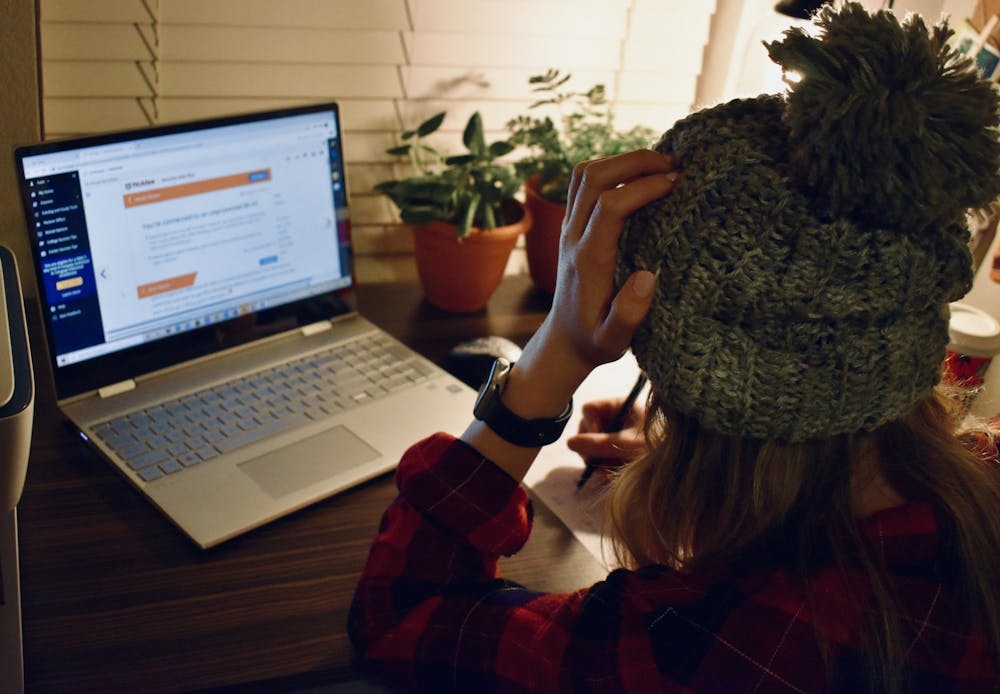One word that has come to mind for any student or instructor over the course of this year has been frustration.
The type of frustration we’re all experiencing can stem from an array of things, whether it’s an overload of assigned independent work or general aggravation of studying and working from home.
Joseph Bardeen, an associate professor of psychology, explained that what we’re experiencing is “pandemic fatigue.” The effects of this depends on one’s life situation.
For many students and faculty, last years’ transition to online caused a major shock.
For teachers, this required continuous adaptation of course curriculum to an online format. For students, it required a new sense of maturity, accountability and prioritization.
This transition was especially hard for students, since these qualities aren’t usually required as much.
“Online classes are difficult for many reasons — stress, worry and uncertainty, which leads to ‘pandemic fatigue,’” Bardeen said. “On top of that, you’re now having to shift into a new way of doing things and the way that online classes are set up, they require you to be more self-motivated, self-guided and to make sure you set up your environment in a way that allows you to be successful in an online aspect.”
Without the urgency to return to in-person classes and a continuing sense of complacency, the number of frustrated students will grow, which could later have effects on enrollment numbers as students find alternatives.
Continuing with the status-quo mentality is beneficial to no one. While the administration and provost office have made strides to return to class, there have been hurtles along the way, one of which was a motion to vote no confidence — a silly motion given the circumstances.
So, how can we improve from here?
It seems like we’re inching towards the first day of normalcy, but a few online classes are still inevitable.
Bardeen shared a few ways that we can improve our situations to better our learning experiences.
The most impactful being taking into account the environment you’re working in. If you’re working from your bed — an object that our brains associate with sleeping — get up and try a new location.
“Classrooms are designed for learning and minimizing distraction.” Bardeen said.
In simple terms, locate yourself in an environment that will best suit your learning experience — a location with as few distractions as possible.
For students who truly believe their education is being cut short or believe the course work is overbearing compared to an in-person class, don’t be afraid to reach out to the instructors or advisors.
Education requires an open-ended communication stream, and it’s imperative we give our instructors valuable feedback.
There should be no shame in being vocal about your experience.
If you’ve done everything in your power to improve your education during the pandemic but haven’t seen improvement in the delivery, be vocal.
Change doesn’t occur with complacency.
Do you like this story? The Plainsman doesn't accept money from tuition or student fees, and we don't charge a subscription fee. But you can donate to support The Plainsman.

Jonathan Stuckey, sophomore majoring in political science and public relations, is a columnist for The Plainsman.





